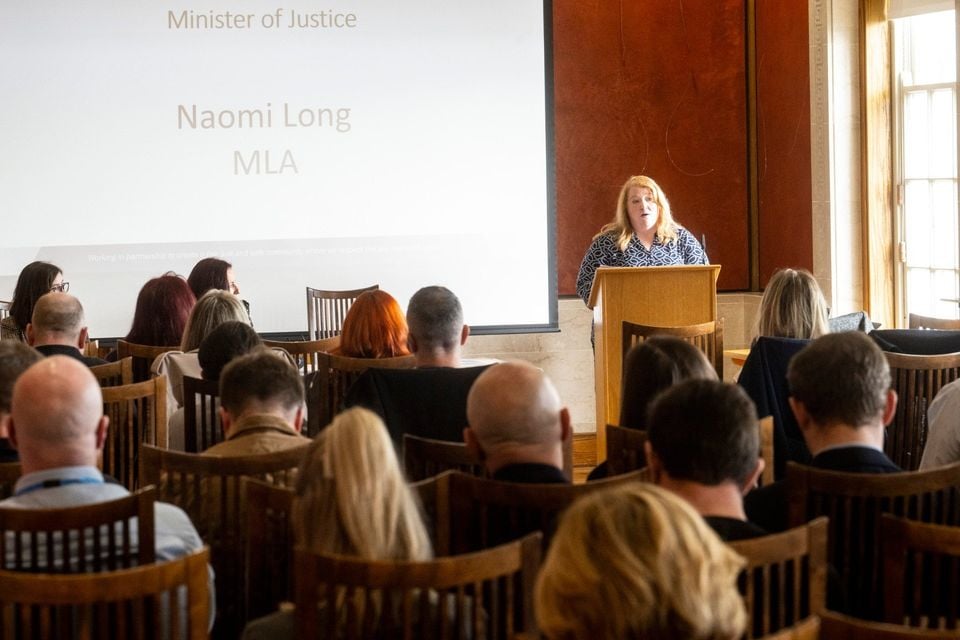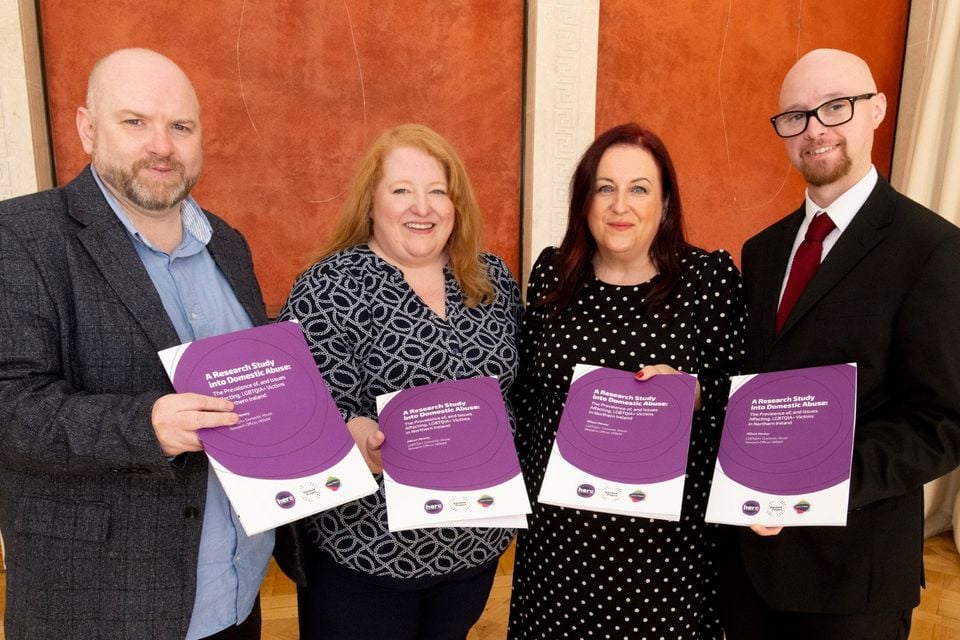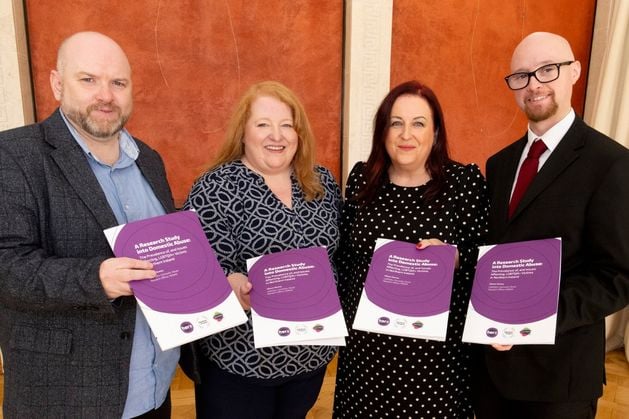A study published on Tuesday revealed that 64.5% of participants who suffered abuse at hands of a loved one didn’t tell anyone what they were going through.
The research, conducted by NI based charity HERe NI in partnership with Cara-Friend and The Rainbow Project, found that more than a quarter (26.8%) of individuals who did report abuse felt they were either not believed or taken seriously by service providers.
One male respondent who reached out to the PSNI for help described being left feeling like “they just really didn’t seem to care”.
“I just kept getting pushed from post to pillar, different officers, different police stations,” they said.
“You could tell they didn’t want to be in that room, didn’t want to be on the phone call. I found that they’re not trained properly.”
HERe NI surveyed 87 people and interviewed 16 participants as part of the research.
Approximately 60% of respondents felt that the existing legal, policy, and practice initiatives in NI for LGBT+ survivors of domestic violence and abuse were “not so effective” or “not at all effective”.

Justice Minister Naomi Long speaking at the launch of the research study in the Long Gallery, Parliament Buildings.
Only 14.5% of participants agreed that services were “extremely effective” or “very effective”.
One respondent revealed that when they were reporting abuse, service providers assumed the perpetrator was a man.
“When I phoned the GP, that was hard because he assumed that it was a man, and I didn’t even correct him… he was really nice, but he just went on this whole spiel, as if it was a straight relationship,” they said.
“I also phoned a helpline, and when I was speaking to the person there, as soon as I said that it was a woman, it was almost like they lost interest.”
The primary reasons given by those who chose not to report the abuse included not recognising the situation for what it was (71.15%), self blame (55.77%), and concerns about making the situation worse (55.77%).
One female participant said she couldn’t comprehend the idea that she was in harmful relationship as a lesbian.
“The first time I came across research into domestic abuse in the LGBT Community I remember seeing a little flyer for it and going, ‘What?! What do you mean?’,” she recalled.
“It didn’t even occur to me that it could be a thing.”
Other reasons why participants didn’t report abuse included, mistrust with support organisations or police (36.29%) concerns about the perpetrator being well-known (30.77%) and fear of legal repercussions (26.92%).
One male victim did not want to reach out to LGBT+ support organisations as his ex-partner was popular in the community.
“I felt like I couldn’t go to the Rainbow Project, because it was like telling our mutual mates,” he explained.
“It would have felt uncomfortable and difficult.
“At the time when I was looking for support, I couldn’t really seem to find abuse centres that weren’t just for women hurt by men.
“I didn’t want to go there, because they’re not going to give me the kind of support that I’ll need.
“And I didn’t want to go do the queer ones, because of how small the queer community was.”

Pictured L-R at the launch event in the Long Gallery are Scott Cuthbertson from The Rainbow Project, Justice Minister Naomi Long, HEReNI Director Cara McCann, and Adam Murray from Cara-Friend.
News Catch Up – Tuesday 2nd September
Launching the research, Cara McCann, HERe NI Director, said: “Domestic violence and abuse impacts LGBTQAI+ people in Northern Ireland in ways that have too often been invisible.
“This research gives a voice to our community and highlights the urgent need for inclusive services and support.”
The charity is calling for a number of policy recommendations for the NI government, domestic abuse support organisations, LGBT+ support organisations, and other stakeholders that support domestic abuse survivors.
“At HERe NI, we are committed to ensuring that no one is left behind and that survivors feel seen, heard, and safe. We hope this research brings real action across the government and wider society,” Ms McCann concluded.
Justice Minister Naomi Long praised those involved in the research which she hailed as “an important piece of work”.
“I know that recounting abuse can be extremely traumatising for victims, but I hope those who found the strength to participate in this research are aware of the impact their contribution will make going forward,” she said,
The Alliance Party leader said the findings will aid policy development and reform in NI and serve “as an important reminder that members of the LGBTQAI+ community are affected by domestic abuse”.
“At the same time, it has highlighted the very unique challenges and specific barriers faced by LGBTQAI+ people with regards to domestic and intimate partner abuse,” Ms Long added.
“I remain committed to the creation of a society where everyone is safe from threatening behaviour, violence and abuse.
“However, it will take a concerted effort from everyone to challenge the stereotypes and harmful attitudes that allow domestic abuse to happen.”
